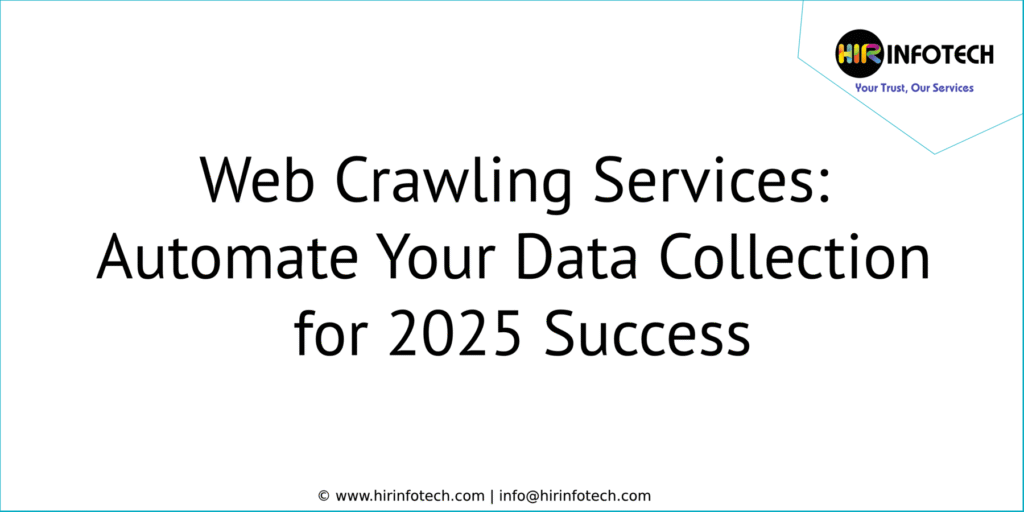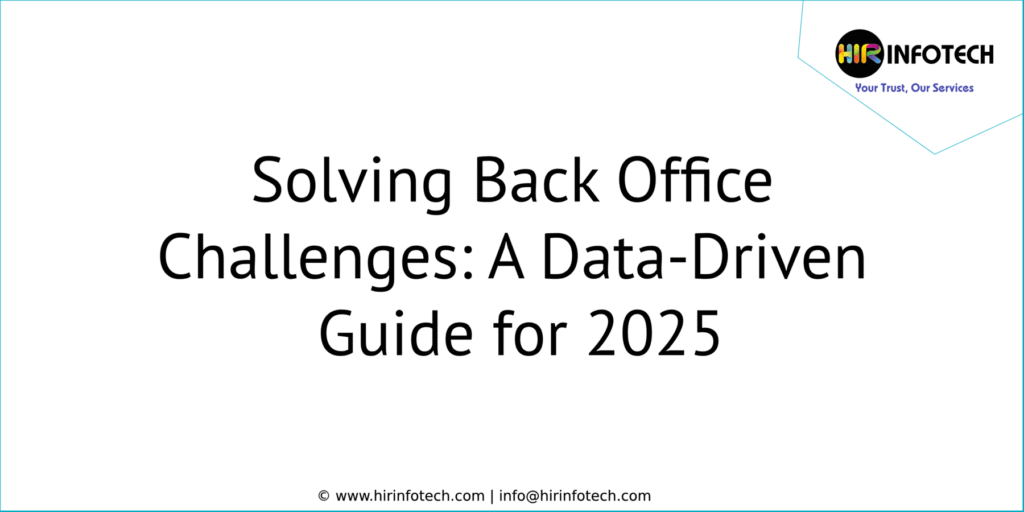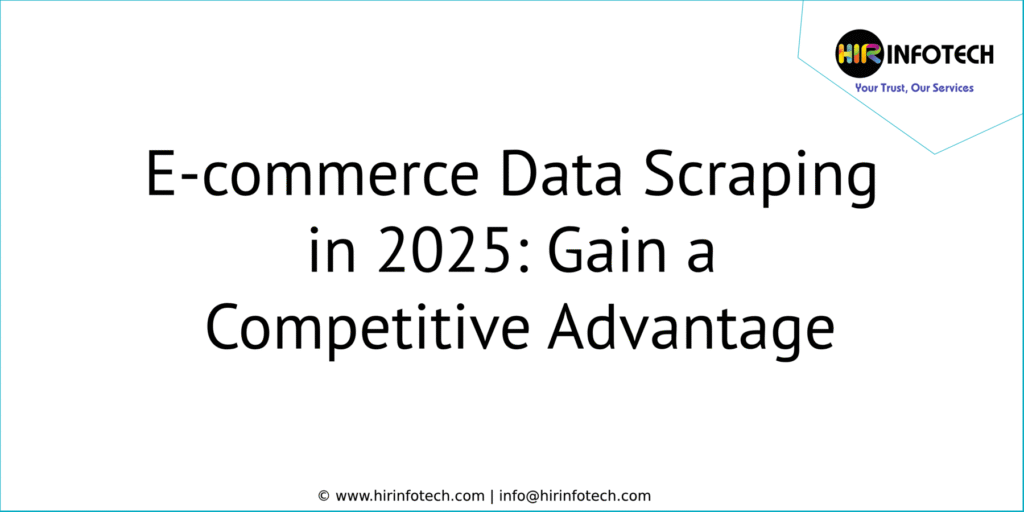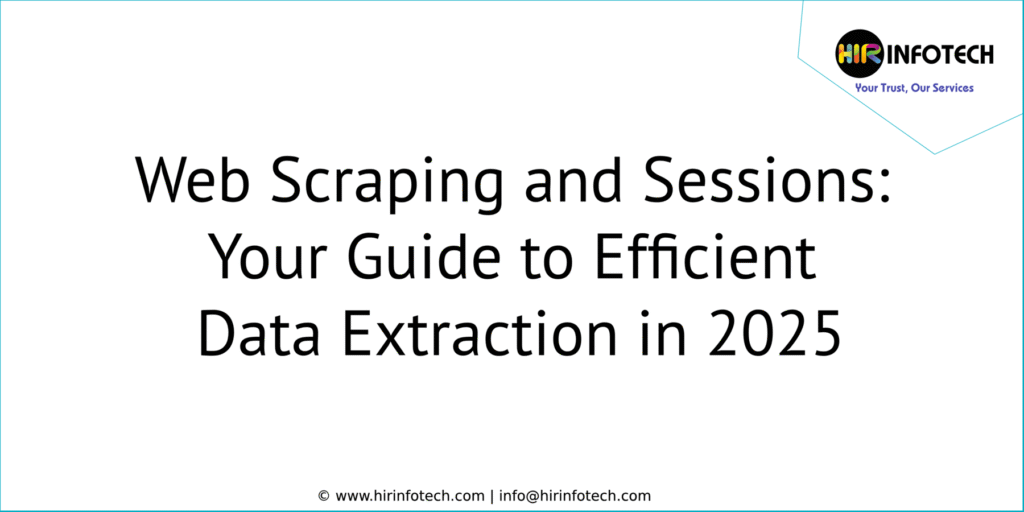
Introduction
In today’s fast-paced business world, data is king. Companies need information to make smart decisions. Web crawling services provide this essential data automatically. It’s like having a tireless digital assistant. This assistant explores the web and gathers information for you. This guide explains how web crawling services can benefit your business in 2025.
What are Web Crawling Services?
Web crawling services automate data collection from websites. Think of them as highly specialized research robots. They systematically browse the internet. They extract specific information based on your needs. This data is then cleaned, organized, and delivered to you. It’s ready for analysis and action.
Web Crawling vs. Web Scraping: Key Differences
The terms are often used interchangeably, but there is a distinction:
- Web Crawling: Focuses on discovering and indexing web pages. It’s like a search engine bot. It follows links to find new content. It maps the web.
- Web Scraping: Focuses on extracting specific data from known web pages. It’s like taking notes from a particular book.
A web crawling service often incorporates web scraping. Crawling finds the relevant pages; scraping extracts the desired data.
Why Your Business Needs Web Crawling Services in 2025
Manual data collection is slow, expensive, and prone to errors. A web crawling service solves these problems. It offers:
- Automated Data Collection: Gather information 24/7, without human intervention.
- Scalability: Easily collect data from hundreds or thousands of websites.
- Speed and Efficiency: Get the data you need much faster than manual methods.
- Accuracy and Reliability: Minimize errors and ensure data consistency.
- Cost Savings: Reduce labor costs and improve overall efficiency.
- Real-Time Data: Access up-to-the-minute information for timely decisions.
- Competitive Advantage: Stay ahead of the competition with comprehensive market intelligence.
- Data-Driven Insights: Make decisions based on solid evidence, not guesswork.
- Improved Customer Satisfaction: Help to understand the customers need.
How Web Crawling Services Work: A Step-by-Step Overview
The process is surprisingly simple:
- Define Your Objectives: What data do you need? From which websites? How often?
- Configure the Crawler: We set up the crawler (software) with your specific instructions. This includes target URLs, data fields, and crawling frequency.
- Crawling Process Begins: The crawler systematically visits the target websites. It follows links and navigates pages.
- Data Extraction: The crawler extracts the pre-defined data from each page.
- Data Cleaning and Structuring: The extracted data is cleaned, validated, and organized into a usable format.
- Data Delivery: You receive the data in your preferred format (CSV, Excel, JSON, API, database).
Key Components of a Professional Web Crawling Service
- Crawlers (also called Spiders or Bots): The software robots that navigate the web and extract data.
- Seed URLs: The starting points for the crawler’s exploration of the web. These are the initial URLs you provide.
- Extraction Rules: Specific instructions that tell the crawler exactly what data to extract from each page.
- Data Storage: A secure and reliable location where the collected data is stored (e.g., a database, cloud storage).
- Scheduler: Automates the crawling process, running it at predefined intervals (e.g., hourly, daily, weekly).
- Proxy Servers: Used to mask the crawler’s IP address, preventing blocking and ensuring anonymity.
- Quality Assurance: Check the quality of data.
Use Cases: How Businesses Across Industries Use Web Crawling
Web crawling services have a wide range of applications:
- E-commerce and Retail:
- Price Monitoring and Comparison: Track competitor prices in real-time and adjust your pricing dynamically.
- Product Assortment Analysis: Identify trending products, monitor competitor offerings, and optimize your product selection.
- Inventory Management: Track product availability and stock levels across multiple retailers.
- Marketing and Sales:
- Lead Generation: Identify potential customers and gather contact information from websites and online directories.
- Market Research: Analyze customer sentiment, track brand mentions, and identify market trends.
- SEO Optimization: Analyze competitor websites, identify relevant keywords, and improve your search engine rankings.
- Finance and Investment:
- Investment Research: Gather financial data, track company performance, and monitor market news.
- Risk Management: Identify potential risks and fraud by monitoring various data sources.
- Alternative Data Analysis: Access unique datasets (e.g., social media sentiment, satellite imagery) for investment analysis.
- Real Estate:
- Property Listing Aggregation: Collect data on properties for sale or rent from multiple listing sites.
- Market Analysis: Track property prices, rental yields, and market trends.
- Investment Property Identification: Find potential investment opportunities based on specific criteria.
- Travel and Hospitality:
- Price Comparison: Monitor flight and hotel prices across different booking platforms.
- Availability Tracking: Track room availability and booking trends.
- Reputation Management: Monitor customer reviews and feedback on travel websites.
- News and Media:
- Content Aggregation: Collect news articles, blog posts, and other content from various sources.
- Trend Monitoring: Identify trending topics and news stories in real-time.
- Fact-Checking and Verification: Verify information and combat the spread of misinformation.
- Human Resources and Recruitment: * Scrape job boards and company websites to identify potential candidates. * Analyze salary data and compensation trends. * Monitor employer reviews and company culture.
- Manufacturing
- Gather data from supplier’s websites.
- Check product availability.
- Government
- Can be used for public welfare.
Benefits of Outsourcing to a Web Crawling Service Provider (Like Hir Infotech!)
While building an in-house crawling infrastructure is possible, outsourcing offers compelling advantages:
- Expertise and Experience: Benefit from the knowledge and skills of a dedicated team of web crawling specialists.
- Advanced Technology and Infrastructure: Access state-of-the-art crawling tools and robust infrastructure without the significant upfront investment.
- Scalability and Flexibility: Easily scale your crawling operations up or down as your data needs change.
- Cost-Effectiveness: Often more cost-effective than building and maintaining an in-house team, especially considering infrastructure, software, and personnel costs.
- Time Savings: Free up your internal resources to focus on core business activities and strategic initiatives.
- Data Quality and Reliability: Ensure accurate, consistent, and up-to-date data through rigorous quality control processes.
- Handling Anti-Crawling Measures: Experienced providers are skilled at navigating website anti-crawling techniques, ensuring consistent data delivery.
- Legal and Ethical Compliance: Ensure your crawling activities adhere to all relevant regulations and ethical guidelines.
Choosing the Right Web Crawling Service: Essential Factors
Selecting the right provider is critical for success. Consider these key factors:
- Data Requirements: Clearly define the specific data you need, the websites you want to crawl, and the desired frequency of updates.
- Scalability: Ensure the service can handle your current and future data volume requirements.
- Frequency of Crawls: Determine how often you need the data updated (real-time, hourly, daily, weekly, monthly).
- Data Formats: Specify the formats in which you need the data delivered (e.g., CSV, Excel, JSON, XML, direct database integration, API access).
- Pricing Model: Understand the pricing structure (e.g., per request, per page, per data point, subscription-based). Choose a model that aligns with your budget and needs.
- Technology and Infrastructure: Inquire about the provider’s technology stack and infrastructure to ensure reliability and performance.
- Customer Support and Communication: Look for a provider with responsive and helpful customer support. Clear communication is essential.
- Legal and Ethical Compliance: Verify that the provider adheres to all relevant data privacy regulations and ethical scraping practices.
- Data Quality Guarantees: Ask about the provider’s data quality assurance processes and guarantees.
- Customization Options: Determine if the service can be tailored to your specific needs and requirements.
- Reputation and Experience: Look at the online presence of the service provider.
Web Crawling Best Practices: Ensuring Ethical and Effective Data Collection
- Always Respect Robots.txt: The robots.txt file is a standard used by websites to tell web crawlers (bots) which parts of the site they are allowed to access and which they should avoid. Always adhere to these instructions.
- Implement Delays and Crawl Politely: Introduce random delays between requests to avoid overloading the target website’s servers. Mimic human browsing behavior as much as possible.
- Use a Realistic User-Agent: A user-agent string identifies your crawler to the website. Use a realistic user-agent string that represents a common web browser.
- Rotate IP Addresses (Use Proxies): Use a pool of proxy servers to distribute your requests across multiple IP addresses. This helps to avoid IP blocking.
- Monitor Website Changes: Websites frequently change their structure and layout. Regularly monitor the target websites and update your crawling rules as needed.
- Implement Robust Error Handling: Anticipate potential errors (e.g., network issues, website downtime) and implement error handling mechanisms to ensure your crawler can recover gracefully.
- Prioritize Data Quality: Implement data cleaning, validation, and standardization processes to ensure the accuracy and consistency of the extracted data.
- Be Ethical and Transparent: Avoid scraping personal data without consent. Be transparent about your crawling activities if requested. Respect website terms of service.
- Store Data Securely: Protect collected data with appropriate access control.
The Future of Web Crawling Services: Trends and Innovations
The field of web crawling is continuously evolving, driven by technological advancements and changing business needs. Key trends to watch in 2025 and beyond include:
- AI-Powered Web Crawling: Artificial intelligence (AI) and machine learning (ML) are revolutionizing web crawling, making it more intelligent, efficient, and adaptable. AI can:
- Automate Data Element Identification: AI algorithms can automatically identify and extract relevant data elements from websites, even with complex or varying layouts.
- Handle Dynamic Content: AI can effectively crawl and extract data from websites that use JavaScript and other dynamic content loading techniques.
- Adapt to Website Changes: Machine learning models can learn from past website changes and automatically adjust crawling rules, reducing the need for manual intervention.
- Improve Data Quality: AI can be used to automatically clean, validate, and standardize extracted data, ensuring higher accuracy and consistency.
- Bypass Anti-Crawling Measures: Sophisticated AI techniques can help to bypass CAPTCHAs and other anti-crawling measures more effectively.
- Real-Time Web Crawling: The demand for real-time data is growing rapidly across many industries. Web crawling services are evolving to meet this need, providing near-instantaneous access to the latest information.
- Increased Emphasis on Ethical and Legal Compliance: As data privacy regulations become stricter and more widespread, ethical and compliant web crawling practices are becoming even more critical.
- No-Code/Low-Code Web Crawling Platforms: These user-friendly platforms are making web crawling more accessible to non-technical users, empowering business users to collect data without needing to write code.
- Integration with Other Data Tools and Platforms: Web crawling services are increasingly integrated with other data tools, such as data visualization platforms, business intelligence dashboards, and CRM systems.
- Cloud-Based Web Crawling: Cloud computing provides the scalability, reliability, and cost-effectiveness needed for large-scale web crawling projects.
Frequently Asked Questions (FAQs) – Addressing Common Concerns
- What is the difference between web crawling and web scraping?
- Web crawling is the process of systematically browsing the web and discovering web pages (like a search engine). Web scraping is the process of extracting specific data from those pages. Crawling often includes scraping.
- How do web crawling services handle websites that try to block crawlers?
- Reputable services use various techniques: rotating IP addresses (using proxies), setting realistic delays between requests, using different user-agents, handling CAPTCHAs, and always respecting robots.txt. Hir Infotech employs all these best practices.
- Can you crawl websites that require a login (username and password)?
- Yes, we can. This requires more advanced techniques and secure handling of login credentials. We always prioritize data security and comply with website terms of service.
- What happens if the website I’m crawling changes its design or structure?
- Website changes are a common challenge. We continuously monitor the websites we crawl and update our crawling rules (the instructions for our crawlers) to adapt to these changes. This minimizes disruption and ensures consistent data delivery.
- How do you ensure the quality and accuracy of the crawled data?
- We implement rigorous data quality checks:
- Automated Validation: Checking for data consistency, completeness, and adherence to expected formats.
- Data Cleaning: Removing duplicate entries, correcting errors, and standardizing data formats.
- Manual Review (when needed): For complex projects, our team may manually review a sample of the data to ensure accuracy.
- We implement rigorous data quality checks:
- What data formats can you deliver the crawled data in?
- We offer a variety of formats to suit your needs:
- CSV (Comma-Separated Values): A simple, widely compatible text-based format.
- Excel (XLSX): For easy analysis and manipulation in spreadsheets.
- JSON (JavaScript Object Notation): A lightweight format commonly used for APIs and web applications.
- XML (Extensible Markup Language): A more structured format suitable for complex data.
- Direct Database Integration: We can load the data directly into your database (e.g., MySQL, PostgreSQL, SQL Server, MongoDB).
- API Access: Real-time data feeds via a custom API.
- We offer a variety of formats to suit your needs:
- How much does a web crawling service cost?
- The cost varies depending on factors like:
- The complexity of the target websites.
- The volume of data to be crawled.
- The frequency of data updates (real-time, daily, weekly, etc.).
- The specific data points required. Contact Hir Infotech for a personalized quote.
- The cost varies depending on factors like:
Hir Infotech: Your Trusted Partner for Web Crawling Services
Hir Infotech provides comprehensive, reliable, and ethical web crawling services. We are dedicated to delivering high-quality data that empowers your business to make informed decisions and achieve its goals. We offer:
- Customized Web Crawling Solutions: Tailored to your specific needs and requirements.
- Advanced Technology: Utilizing the latest web crawling techniques, AI-powered tools, and robust infrastructure.
- Scalability and Flexibility: Handling projects of any size, from small-scale data collection to large, enterprise-level crawling.
- Data Quality Assurance: Ensuring accurate, consistent, and up-to-date data through rigorous quality control processes.
- Fast Turnaround Times: Delivering data quickly and efficiently to meet your deadlines.
- Competitive Pricing: Offering transparent and cost-effective pricing models.
- Expert Support: Providing responsive and helpful customer service throughout the project lifecycle.
- Ethical and Legal Compliance: Adhering to all relevant data privacy regulations (GDPR, CCPA, etc.) and ethical web crawling best practices.
Ready to harness the power of web data and gain a competitive edge in 2025? Contact Hir Infotech today for expert web crawling services, data solutions, and data analytics! Let us help you unlock valuable insights from the web and transform your data into actionable intelligence. We’ll discuss your project, understand your needs, and create a custom solution that drives your business forward.



